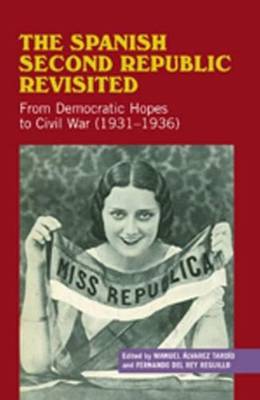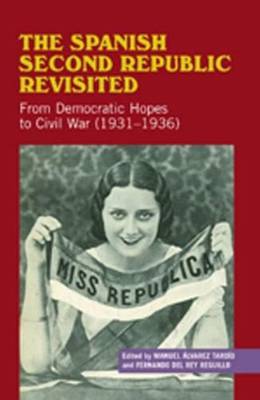
En raison d'une grêve chez bpost, votre commande pourrait être retardée. Vous avez besoin d’un livre rapidement ? Nos magasins vous accueillent à bras ouverts !
- Retrait gratuit dans votre magasin Club
- 7.000.000 titres dans notre catalogue
- Payer en toute sécurité
- Toujours un magasin près de chez vous
En raison de la grêve chez bpost, votre commande pourrait être retardée. Vous avez besoin d’un livre rapidement ? Nos magasins vous accueillent à bras ouverts !
- Retrait gratuit dans votre magasin Club
- 7.000.0000 titres dans notre catalogue
- Payer en toute sécurité
- Toujours un magasin près de chez vous
The Spanish Second Republic Revisited
From Democratic Hopes to Civil War (1931-1936)
Manuel Álvarez Tardío, Fernando Reguillo
132,95 €
+ 265 points
Format
Description
The Spanish Civil War is one of the most studied events in modern European history. Its origins, that is to say the politics of the Second Republic (1931-1936), have been much debated. The republican period has been much idealised and in particular the myth of Spanish democracy beset by fascism, of which Franco was its leading figure, has been much cultivated. But was this really the case? Recently historians of the Republic have proposed a new and non-ideological perspective on the 1930s. Spain's path was at once different yet in many ways similar to that of Europe during the inter-war period. This book brings together leading and innovative specialists to analyse the main obstacles to the consolidation of democracy in Spain and to debate the principal stereotypes of the traditional historiography of both left and right. The issues addressed include: the breakdown of democracy; whether the CEDA was an opportunity or a threat; the centrist appeal under the Republic; how the elections were viewed and conducted; the transformation of fascism; new revelations about the Communist party; the politics of exclusion at the local level; the perceived necessity for repression; new perspectives on the Civil Guard; the role of intellectuals in the Republic; and revisionism and sectarian history. The book offers a new and dynamic vision of why Spanish democracy failed to consolidate itself and why it finally fell into the terror of civil war. Essential reading for all those interested in modern European history.
Spécifications
Parties prenantes
- Auteur(s) :
- Editeur:
Contenu
- Nombre de pages :
- 320
- Langue:
- Anglais
- Collection :
Caractéristiques
- EAN:
- 9781845194598
- Date de parution :
- 15-09-11
- Format:
- Livre relié
- Format numérique:
- Genaaid
- Dimensions :
- 157 mm x 236 mm
- Poids :
- 589 g

Les avis
Nous publions uniquement les avis qui respectent les conditions requises. Consultez nos conditions pour les avis.






